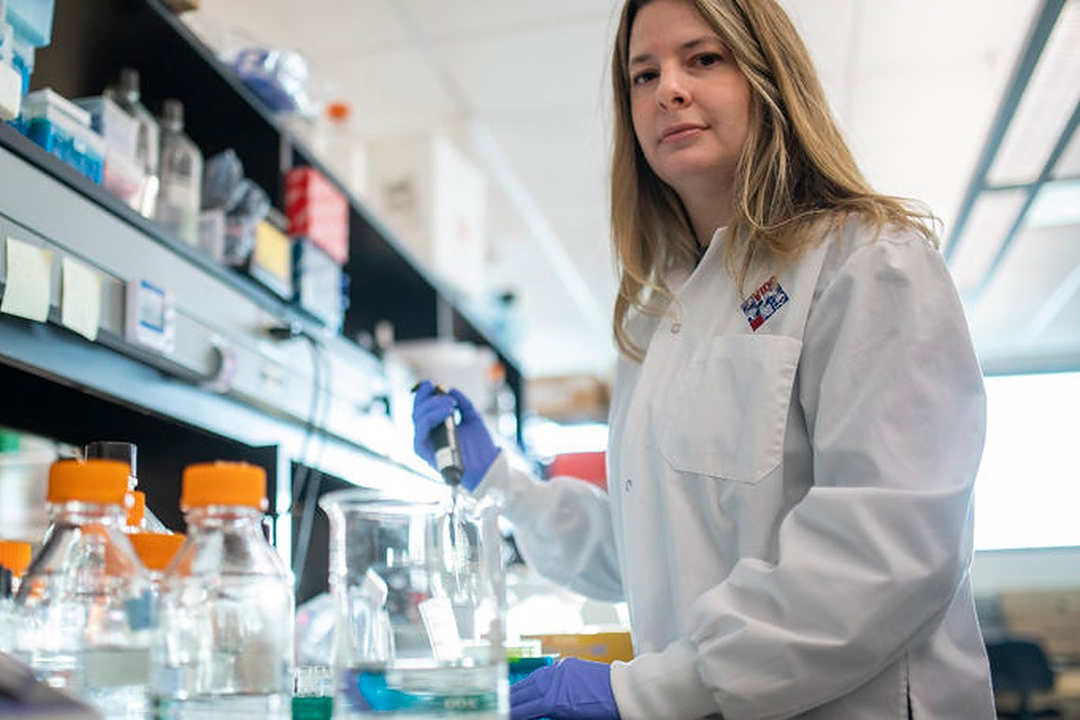
USask unites: Virologist searches for solutions amid COVID-19 pandemic
Since the first cases of COVID-19 were announced in the province, members of the USask community have come together to support one another in these uncertain times.
By University CommunicationsExtraordinary circumstances have brought out extraordinary responses from members of our USask community. From frontline health-care workers to researchers looking for a solution to this global health threat, there are so many stories about people are working to make our home communities safer and healthy. Here are a few of the inspiring stories of our students, staff, faculty and alumni.
Canada needs its own vaccine for the novel coronavirus.
As a virologist working from morning to night alongside other scientists at the University of Saskatchewan’s (USask) Vaccine and Infectious Disease Organization – International Vaccine Centre (VIDO-InterVac), no one knows this more than Dr. Alyson Kelvin (PhD).
“If all countries are experiencing this at the same time, no one is going to be able to share with us,” said Kelvin in a recent interview with Maclean’s.
Boarding a plane from her home in Halifax, where she is a virologist at Dalhousie University, to join other scientists at the VIDO-InterVac lab in Saskatoon, Kelvin’s considerable expertise conducting research on ferrets is a welcome asset in the investigation for a vaccine.
"We're beginning to evaluate this in animal models and we can even bring this into people for Phase 1 clinical trials as soon as three weeks from now," Kelvin said in an interview with CBC's Information Morning.
"We're working as hard as we can to move this as fast as possible," she said while cautioning that it typically takes a year for vaccines to be developed, tested and distributed to the general public.
But when it comes to developing a vaccine for COVID-19, VIDO-Intervac is well-positioned to make a breakthrough that could save lives on a global scale. The lab has already been working on coronavirus vaccines, primarily for animals, for four decades, according to a recent profile by CBC Canada. Today, the vaccine centre is one of only a few high-level containment facilities in the world able to conduct research on a vaccine for COVID-19.
For researchers working at the USask research centre, finding this vaccine is their top priority.
“I work from waking up until going to sleep,” said Kelvin.
Share your stories with us: We are collecting the stories of resilience and good spirit from our USask community. Please send story ideas and photos to news@usask.ca.
As a community it is critical that we support each other and remain respectful during what is a difficult time for all of us. Please follow all guidelines and take all precautions to prevent the further spread of COVID-19 in our community.
How you can help our students during the COVID-19 pandemic: https://alumni.usask.ca/news/2020/covid-19-how-you-can-help-our-students.php
For the latest developments and information about the University of Saskatchewan's response to COVID-19, please go to www.usask.ca/updates.
The University of Saskatchewan is undertaking critical research and contributing to global efforts to combat COVID-19. The University of Saskatchewan's Vaccine and Infectious Disease Organization (VIDO-InterVac) is a world leader in developing vaccines and technologies to combat infectious diseases. Your support of the COVID-19 Research Fund supports the increased efforts of researchers at the University of Saskatchewan to develop vaccines and treatments for COVID-19. Donate now.

